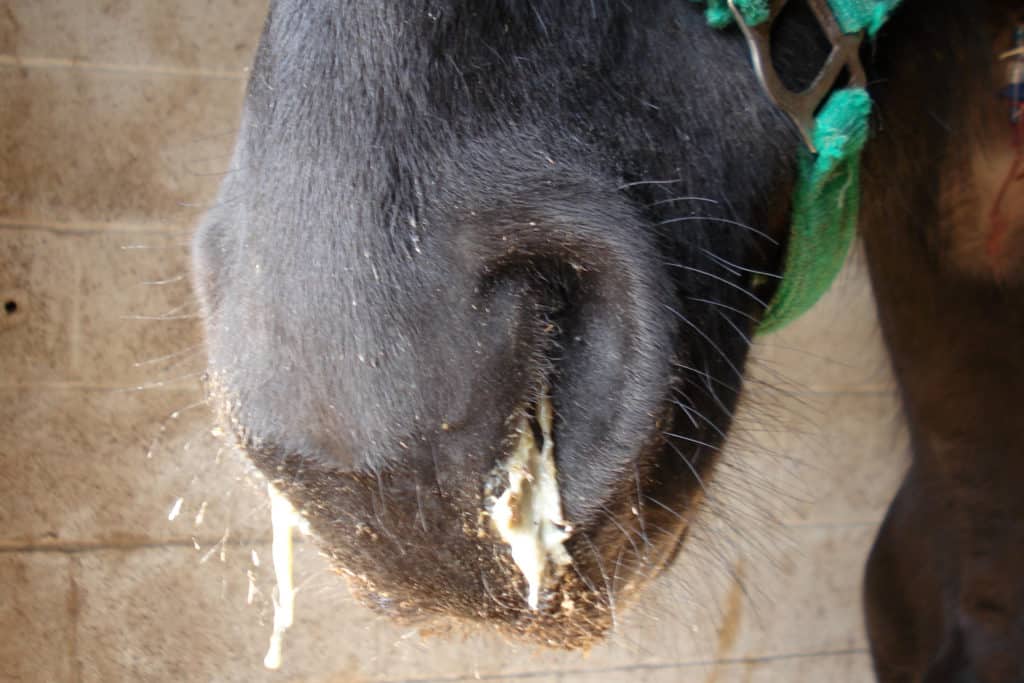
Understanding Strangles in Horses
This common and highly contagious respiratory disease affects horses worldwide.
News and issues for equine health professionals

This common and highly contagious respiratory disease affects horses worldwide.

Shock wave therapy is an important tool for helping manage a variety of equine conditions and injuries.

Veterinary intervention can make itchy horses more comfortable and keep allergies under control. Sponsored by Kinetic Vet.

Learn about preventive methods and surgical options for treating an umbilical infection.

The American Association of Equine Practitioners has published new nocardioform placentitis guidelines to help veterinarians help protect their clients’ broodmares and unborn foals.

Learn how serum amyloid A can help veterinarians and owners detect issues in horses early and provide critical time to get ahead of disease, infection, and more. Sponsored by Zoetis.

Don’t be caught unaware of the current United States Equestrian Federation guidelines on shock wave.

Bonny Henderson, DVM, CERP, describes how extracorporeal shock wave therapy (ESWT) works to treat and even prevent injuries.

Prior to the lifting of an omeprazole ban in 2016, researchers found that all racehorses in a small study had both glandular and squamous ulcers.

Horses with equine Cushing’s might benefit from blue light therapy to help them grow lighter, more comfortable winter coats.

These programs designed to strengthen airway muscles might help affected horses avoid surgery.

New Innovation and Discovery Research Grants are available to aid in equine research.

The American Association of Equine Practitioners has published guidelines about leptospirosis risk factors, transmission, clinical signs, treatment, and other considerations.

Discover how shock wave therapy, mesotherapy, and ongoing maintenance helped a young event horse with kissing spines return to performance in this free report.

Read about some of the trending and emerging treatments for keeping performance horses feeling their best.

Signs and tests that can help you and your veterinarian quickly identify the various causes of foal diarrhea.
Stay on top of the most recent Horse Health news with
"*" indicates required fields